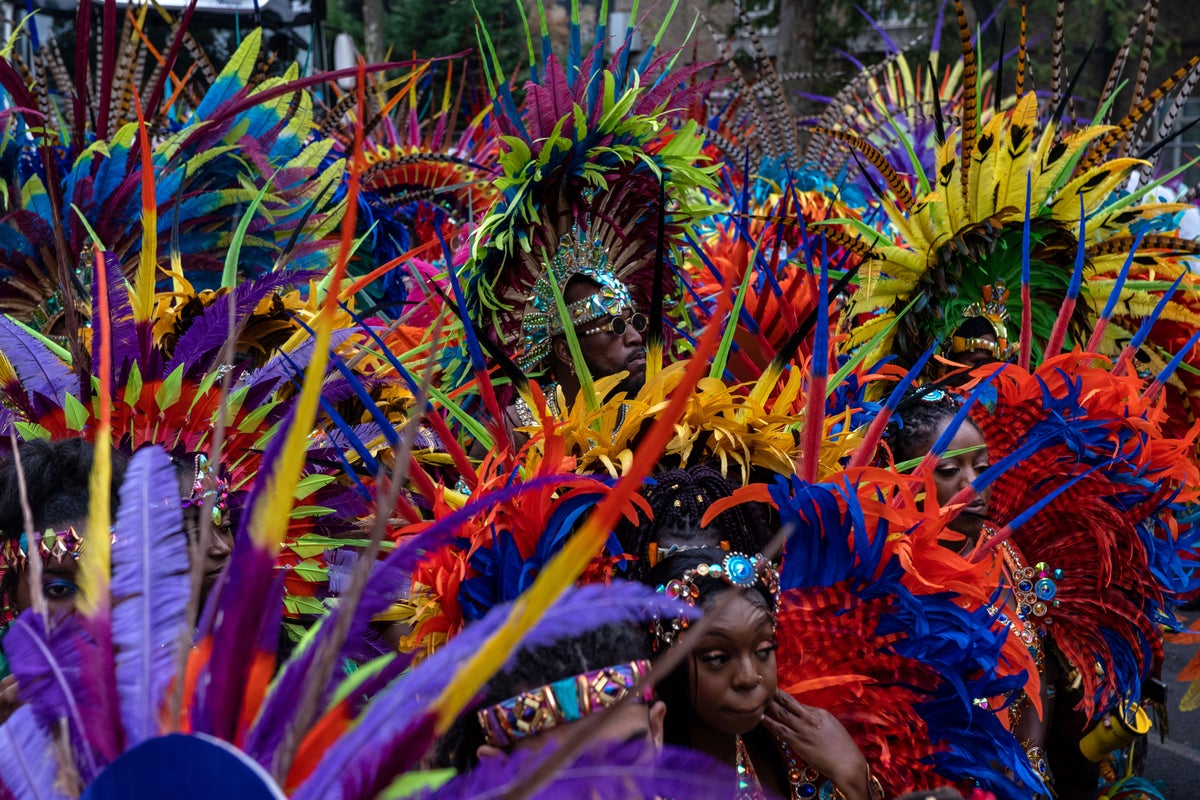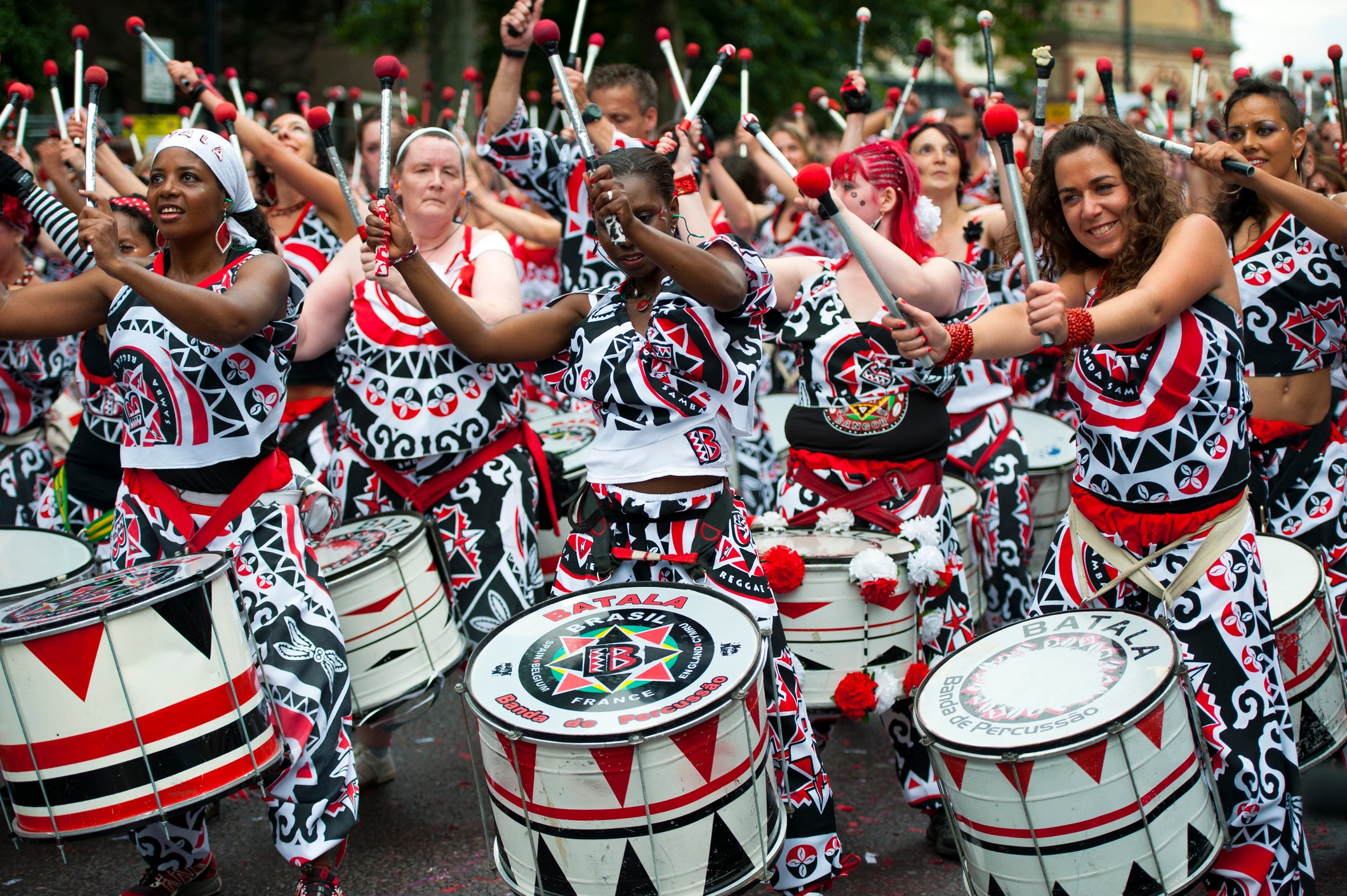
Bright colours, dazzling floats, performers and the mouth-watering smell of Caribbean cuisine... Notting Hill Festival is back for another year.
Carnival is one of Europe’s biggest street parties, attracting millions of people from around the world to the streets of West London. But it’s more than just a party. This historic event is one that paved the way to change.
According to the official Carnival website, the late Political Activist and Broadcaster, Darcus Howe, reportedly once said “If there weren’t race riots in Notting Hill I don’t believe that we would have had the Notting Hill Carnival. If it wasn’t for the murder of Kelso Cochrane, Carnival wouldn’t have happened.”
What are the origins of Notting Hill Carnival?
The origins of Notting Hill Carnival trace back to the age of the slave trade. During this time, Caribbean culture was closely tied to the pre-Lenten festival of Mardi Gras and masquerade balls held by French plantation owners.
These balls saw families coming together in celebration, while those that were enslaved were forbidden from participating. This then led the people of the Caribbean to create their own traditions, drawing on some parts of these masquerades but also bringing in traditional African tribal dance and music.
By the time of the first Notting Hill Carnival, over 30,000 Caribbean people were living in the UK after the SS Empire Windrush’s arrival in 1948. By the Fifties, Brixton and Notting Hill were home to the largest population of Caribean people in Britain.
At the time, Notting Hill was in the clutches of a far-right movement which motivated the local white working-class population to treat the black community differently and heightened the echoes of racism in the country. This was led by Oswald Mosley, the aim of the Union Movement was to “Keep Britain White.”
Between 1958 and 1959, attacks on Black communities within Notting Hill, London and Nottingham became more widespread, leading to the murder of 32-year-old Antiguan-born carpenter, Kelso Cochrane.
As racial tensions continued to rise, Trinidadian-born activist Claudia Jones and founder of the West Indian Gazette newspaper organised a Caribbean Carnival in St Pancras Town Hall on the 30th of January 1959, in response to the increase in attacks. The carnival was seen as a display of strength and unity within the Caribbean communities.

The trauma and tragedy which raced through the black community is what led to a shift and a need for change. In 1966 the first-ever street party took place when community activists Rhaune Laslett and Andre Shervington organised a party for children in Notting Hill. That street party then turned into a carnival procession, when Russell Henderson’s steel band walked through the streets and most of the community began to join in.
Remembering the elements Ms Jones brought in 1959 and moving from the town hall to the streets, this celebration came to be what we now know as Notting Hill Carnival - which ultimately commemorates Caribbean culture, music and tradition.
In 1974, 100,000 people attended the event for a taste of Caribbean culture. A dozen bands participated, sound systems were introduced and Jamaican reggae, dub and ska music were embraced.

Here’s everything you need to know about this year’s event – including dates, location and more
When is the Notting Hill Carnival?
Notting Hill Carnival performers take part in the main parade on August 29 2022— (Getty Images)
Notting Hill Carnival takes place over August bank holiday weekend from Saturday 26 August to Monday 28 August.
On Saturday, the day will kick off at 4 pm for its UK National Panorama Steel Band Competition at Emslie Horniman’s Pleasance Park. The competition will see seven bands play a 10-minute composition from memory.
Tickets to watch the competition are now on sale on Ticket Source, with general admission costing £20 for adults and £7 for children.
Day two (Sunday) will kick off at 6am with “jour ouvert”, meaning “opening of the day”. This sees “hardcore revellers converge onto the streets of Notting Hill in the very early hours of the morning to celebrate the opening of carnival,” according to the Notting Hill Carnival website.
It will be followed by a Children’s Day Parade, the Dutty/Fun Mas Parade, Sound Systems and live stages into the evening. The Families and Children’s Day is free for all.
Monday will see the Adult’s Parade kick-off, with Sound Systems and Live Stages for the rest of the day, which is also free for all to attend.
What is the 2023 line-up?

Every year there are surprise guests that appear across the parade route and sound systems. The Carnival’s organisers often leave announcements until the very last minute, in order to keep each performer a surprise.
Last year saw special guest performances from Sean Paul, Koffee, Tiwa Savage, Megan Thee Stallion and more.
Where will the carnival take place?

The Carnival takes place on the streets of London W10 and W11, around Notting Hill, Ladbroke Grove, Westbourne Grove, Westbourne Park and Kensal Road.
How can I get to the Carnival?

The official Carnival website has said some stations may close temporarily to prevent overcrowding and has advised festival-goers to walk or seek an alternative route.
The stations that will be closed completely or during a certain time are:
Ladbroke Gove: Closed
Latimer Road Closes at 11.30 pm
Notting Hill Gate: Exit only from 11 am to 7 pm. District and Circle lines will not stop at this station and there will be no interchange between the Central line and District and Circle lines all day.
Westbourne Park: Exit only will be from 11 am to 6 pm and the station will close at 11.30 pm.
Holland Park will close at 6 pm.
Royal Oak will be exit only from 11 am to 6 pm and closes at 11:30pm.
Stations that will be open as usual:
Bayswater- people are advised to travel between 11 am–7 pm as Circle and District line trains will not stop at Notting Hill Gate.
Paddington Station has been advised for use instead of Notting Hill Gate or Royal Oak (restricted entry).
High Street Kensington
Kensal Green
Queen’s Park
Queensway and Shepherd’s Bush will be busier than usual mid-afternoon until early evening, according to the Carnival website.
London Overground Nearest Stations are: Queen’s Park, Kensal Rise, Kensal Green
Shepherd’s Bush will have no service on Sunday until 11 am.
For more travel information head over to the official Notting Hill website or check TFL before travelling.
How can I get tickets for Notting Hill 2023?


If you want to watch the parade and soak in the atmosphere, it is completely free. But if you want to join in with the parade, you will need to be part of an authorised group taking part or pay to join in with the procession.
Tickets for the UK National Panorama Steel Band Competition are available to purchase online.
What will the weather be like during Carnival?
According to the Met Office, Notting Hill revellers should expect sunny spells with a few clouds and brief showers across the weekend.
Saturday will see highs of 21C, with a 60 per cent chance of rain set to kick in at 7 pm.
Sunday will be slightly cloudy with highs of 21C, while Monday will also see highs of 21C, with some cloudy spells throughout the day.







